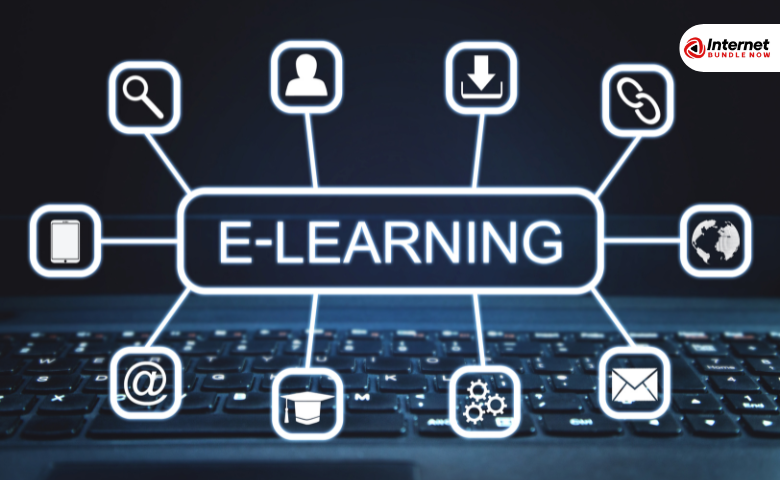- TV
How to Get Premium Channels with Your Cable TV Bundle?
Access to exclusive entertainment content is a priority for many viewers seeking a richer television experience. Premium chan...
Explore More
The internet has fundamentally transformed education, bridging gaps in access and enabling innovation in teaching and learning. At Internet Bundle Now, our role as a trusted Internet Service Provider ensures that educational institutions, educators, and learners can leverage technology effectively. From e-learning platforms to immersive experiences, the internet continues to shape the future of education in remarkable ways.
The shift from traditional classrooms to virtual learning environments has democratized access to knowledge. The internet enables students to learn from global resources, breaking barriers of geography and financial constraints. Collaborative tools like virtual whiteboards and group discussions enhance interactivity, fostering a deeper understanding of concepts. The availability of High Speed Internet Plans ensures seamless participation in virtual classes and webinars, making education accessible to everyone.
Blended Learning
Blended learning combines online and offline methods to create a well-rounded educational experience. Students attend physical classes while engaging with digital content, balancing the advantages of both worlds.
Micro learning
Micro learning delivers short, focused lessons designed for quick comprehension. Platforms offering bite-sized tutorials make learning efficient, particularly for busy professionals and students.
Gamification
Integrating game elements into learning processes increases engagement. Gamified platforms award points, badges, and leaderboards, making education both interactive and enjoyable.
Mobile Learning (M-Learning)
Smartphones and tablets have enabled learning on the go. M-Learning apps allow students to access course materials anytime, ensuring flexibility in their schedules.
Adaptive Learning
AI-driven adaptive learning platforms tailor educational content to individual students. This personalization enhances understanding and retention by addressing unique learning needs.
Immersive technologies like VR and AR provide hands-on experiences in virtual labs or simulated environments. These tools are particularly effective for subjects like medicine, engineering, and the sciences.
E-learning offers unmatched flexibility, allowing students to learn at their own pace. It’s cost-effective compared to traditional setups, reducing expenses on travel and resources. Interactive platforms engage students through quizzes, videos, and forums. High Speed Internet Plans ensure uninterrupted access to high-definition content, while reliable Internet Customer Service guarantees minimal disruptions. Additionally, global access to instructors and diverse courses enriches the learning experience.
Despite its advantages, e-learning has challenges:
For primary and secondary education, the internet facilitates interactive e-learning platforms that align with curriculums. Schools are integrating digital tools like educational games and online assignments to enhance engagement. Parents play a crucial role in guiding younger children through these tools, ensuring they make the most of their learning opportunities.
Universities leverage the internet to offer online degree programs, certifications, and research opportunities. Virtual classrooms enable real-time interaction between professors and students. Platforms like Coursera and edX democratize higher education, allowing learners to gain knowledge from top institutions worldwide.
The internet is pivotal in corporate training and professional growth. Companies use e-learning platforms for employee training, skill development, and compliance courses. Platforms like LinkedIn Learning and Coursera help professionals acquire certifications to advance their careers. Internet Service Provider offerings, such as robust connectivity, are vital for seamless access to these tools.
The future of education is poised to integrate even more advanced technologies. AI and machine learning will enhance personalized learning experiences. Blockchain technology will ensure secure and verifiable online certifications. Peer-to-peer platforms and community-driven learning will foster collaborative growth. As speech recognition tools advance, language learning will become more accessible and immersive.
The internet’s role in education is transformative, enabling access, innovation, and inclusivity. With trends like adaptive learning, gamification, and VR integration, e-learning is evolving rapidly. Internet Bundle Now supports this transformation by offering High Speed Internet Plans that ensure uninterrupted access to digital resources. Our exceptional Internet Customer Service guarantees a seamless experience for educators, students, and professionals. Explore our services today and be part of the educational revolution powered by technology.
Latest insights, tips, and updates from our experts.
George
The Role of Internet in Education E-Learning Trends